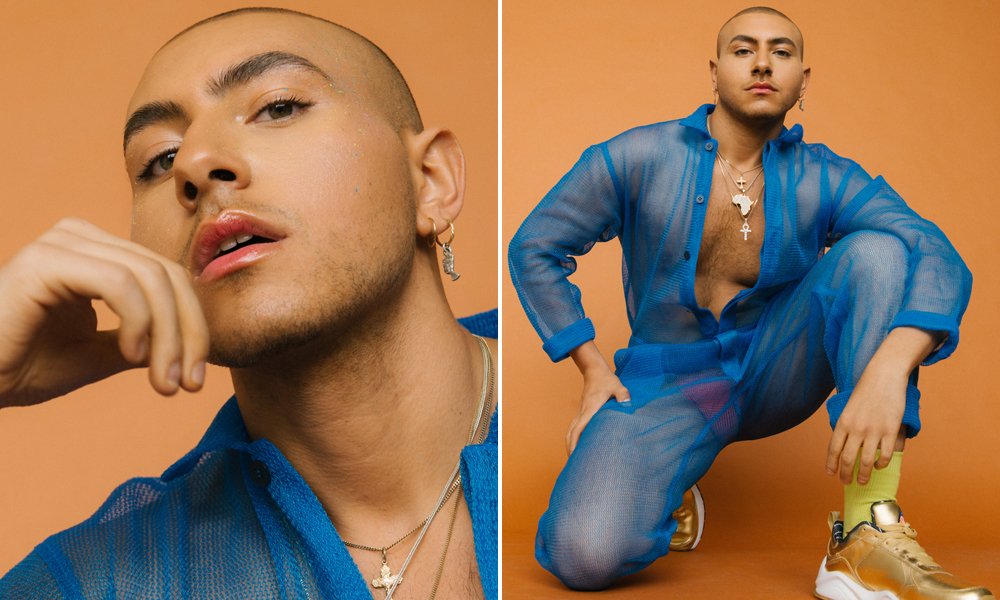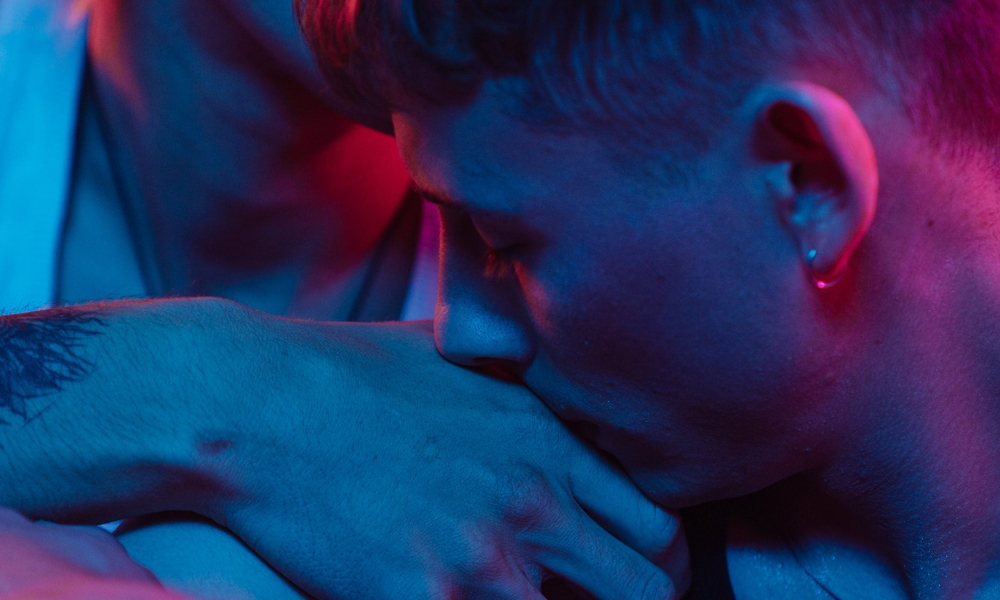Meet the body positive model embracing a new standard for male beauty…
By: Jumol Royes
Photography by: Nelson Huang
Makeup by: Jasmin Winnie Stephen
Clothing provided by: 100% Silk Shop + Gallery
When Mina Gerges walks into a room, people take notice.
He first rose to fame back in 2015 as a university student in London, Ontario when his recreations of celebrity red carpet looks – worn by the likes of Beyoncé, Rihanna, Nicki Minaj, Kim Khardashian and Katy Perry – turned him into a viral sensation. Today, the 24-year-old Egyptian-Canadian is a body positive model, actor and activist on a mission to champion new ideas of male beauty.
IN recently caught up with Gerges, who splits his time between Toronto and New York City, for an in-depth conversation about the dark side of fame, posing nude, his newly-launched Sephora campaign…and mayonnaise!
You’re minding your own business, posting pictures of yourself recreating celebrity red carpet looks on Instagram, when Buzzfeed writes a post about you, and it goes viral. Describe the moment you realized you were Insta-famous.
I think the first time it sunk in was when I was on campus [at Western University] getting my morning coffee and bagel before class, and the girl working [behind the counter] was like, “Oh my God, you’re Mina, right? I love your Instagram! That picture you just posted yesterday was hilarious!” She gave me my coffee and bagel for free and it was at that moment when I did a hair flip in my head and was like, “Wow, I really am that bitch!” Nothing makes you feel like you truly made it like getting free food!
There’s a dark side to fame in the age of social media: it attracts the attention of haters with keyboard courage. How did you cope with being body shamed and bullied while also battling an eating disorder?
I’ll always remember how cruel people were to me about my body. I was at the height of my creativity, making the most elaborate and creative dresses out of shower curtains and garbage bags, and yet the only thing people would comment on was how much weight I gained or how ugly my body was. There was one particular comment where someone said something like, “Wow, it looks like you gained 80 pounds, your body is so gross now.” I clicked on his profile and he was a gay man living in Toronto. I thought to myself: It’s so sad that this is someone from my community who thinks it’s okay to say this, as if I’m not a real person who’s going to read this or run into you at Woody’s or something. I never learned how to cope with it, to be honest. I just deactivated my Instagram account for eight months (October 2015 – May 2016) and worked on learning how to love my body during that time because I can never control what people say, but I can control how their words affect me.

Now you’re a body positivity activist and you’ve turned your pain into your purpose. What do you think is the biggest challenge for men – specifically gay men – when it comes to embracing new concepts of male beauty?
I think for gay men, the homogenous standard of beauty that’s engrained in the fabric of our culture places white gay men with a six-pack as the ideal type of beauty. Having this particular body [type] serves as social currency that gives these gay men popularity [as they’re viewed] as the embodiment of what it means to be a desirable gay man. I’ll always remember that the first images that popped up on Google when I searched “gay men” as a 15-year-old were images of white, muscular gay men with six-packs. It made me feel inadequate for not looking like that and set me on a path to developing an eating disorder in pursuit of that “perfect body.” So for me, embracing new concepts of beauty starts, at the very least, with celebrating and making other body types visible in the same way that images of gay muscular men saturate our visual culture. That’s why I’m so passionate about modelling and bringing more diversity to male fashion; there’s still so much hesitation to embrace non-sample size models, and that needs to change. It’s also about talking about the rampant body image issues and eating disorders that affect so many gay men – and talking about them candidly without being afraid of judgment – so that we don’t feel alone in experiencing these very real things.
Ok, we’ve got to talk about your nude photo shoot for NOW’s 2019 Body Issue: Were you prepared for the intensity of people’s reactions?
I wasn’t prepared for how people would react at all. I lost about 4,000 followers within four hours, which was insane. I kept thinking that the white Instagays post pictures like this literally all the time, except they get followers for it, so it was interesting to see how differently people reacted to my nude shoot.
What do you tell yourself when you find yourself struggling to feel comfortable in your own skin?
Pride and summer in general are times when I find feelings of insecurity creeping up. We’ve normalized going on strict diets in pursuit of a “summer body” or “Pride body” and it’s an ongoing process to not feel like we have to change our bodies to feel confident. One thing I always remind myself is that there are other guys who have bodies like mine, and just knowing that gives me comfort that there’s nothing wrong with having stretch marks, love handles or a belly. On a more personal level, I remind myself that my stretch marks will never go anywhere, so I have to make peace with them and find beauty in them so I can live my life.

You’re featured in a new Sephora campaign…congrats! What’s the significance of partnering with a global beauty brand?
I never saw people like me growing up, and still to this day I don’t see any visible representation of LGBTQ people from the Middle East and North Africa. This is extremely dangerous because our culture actively erases LGBTQ people and in many parts of the Middle East, being queer is still something that can get you arrested or murdered. Our visibility is more important than ever because we don’t just need acceptance or tolerance, we need to have larger conversations about the human rights violations our community still faces every day. I always remember feeling so alone and isolated when I came out, hoping to find someone who had my shared background or ethnicity that I could look up to and know that I would be OK and to validate my identity…but that never happened. I’m so passionate about changing that narrative to let other young queer people from my community know that despite where we grew up or what our culture says about us, we are valid and we exist. Being a part of the Sephora campaign is so beautiful because Middle Eastern culture upholds very toxic standards of how men should dress and look, so to be able to express myself the way I do and radiate confidence while in makeup, is a huge statement against those outdated gender norms. The impact of what it means to see someone from my background in a campaign like this isn’t lost on me; I just hope it gives people from my community hope to know that they deserve to be seen.
What’s your deal with mayonnaise? From what I’ve seen online, it seems like you have some very strong opinions about it (lol).
I am obsessed with mayo. I literally put mayo on everything. I don’t care what it does to my arteries because it brings me so much joy!
Favourite catch phrase or signature saying that sums up who you are.
I always introduced myself in my YouTube videos with, “Hey, it’s me, Mina, bitch!” It basically sums up my energy perfectly!
Watch Mina Gerges’ Sephora campaign video here:
—
JUMOL ROYES is a Toronto-based communications strategist and content writer with a keen interest in personal development and transformation. Follow him on Twitter @Jumol.






POST A COMMENT